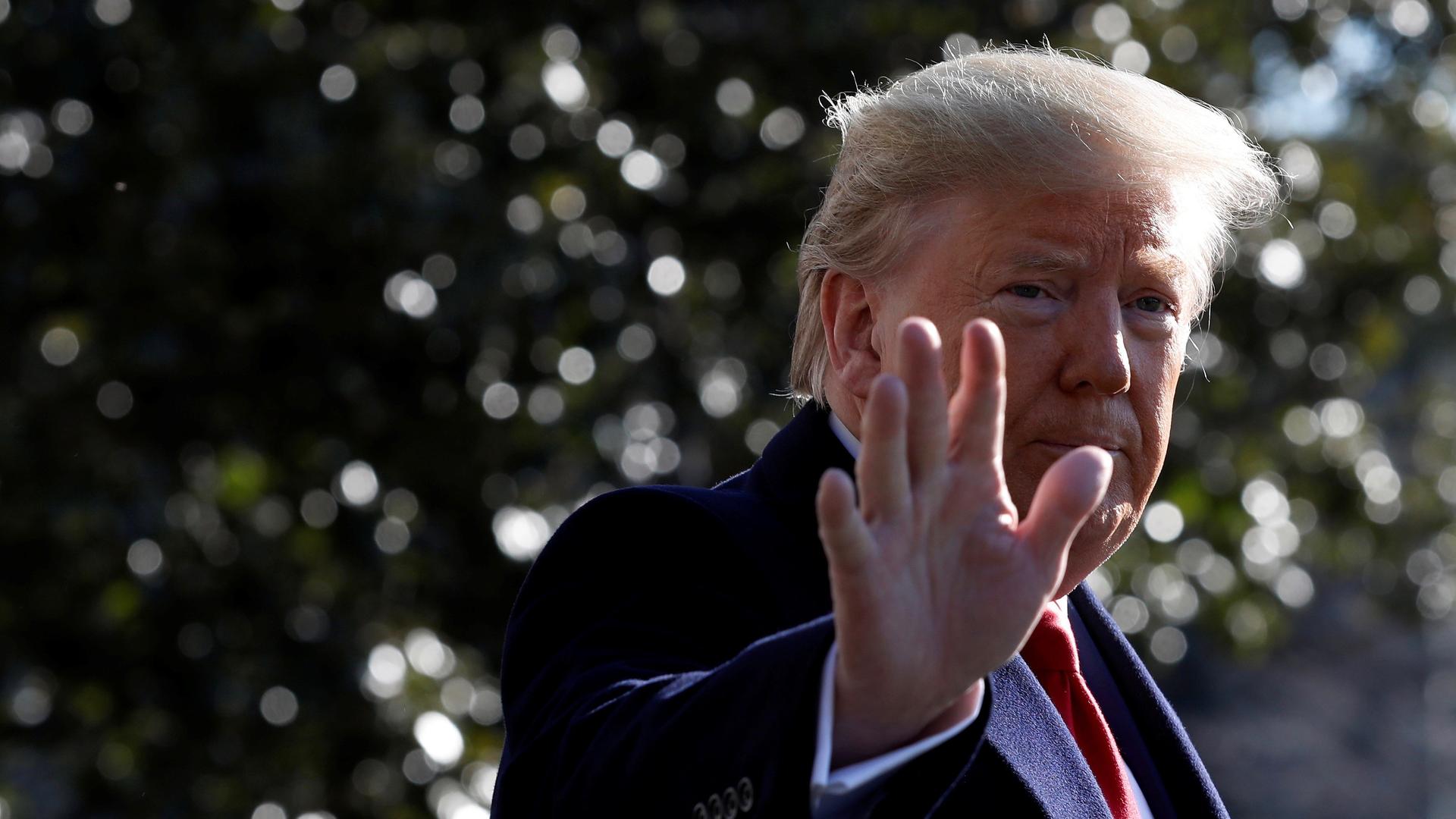During India visit, Trump praises Modi, doesn’t mention human rights
President Donald Trump visited his friend, Prime Minister Narendra Modi, in Gujarat, India, on Monday. At a huge rally at a cricket stadium in Ahmedabad dubbed, “Namaste Trump,” Trump announced a $3 billion defense deal and praised India as an inspiring economic giant.
“It is all the more inspiring because you have done it as a democratic country, you have done it as a peaceful country, you have done it as a tolerant country, and you have done it as a great free country.”
“It is all the more inspiring because you have done it as a democratic country, you have done it as a peaceful country, you have done it as a tolerant country, and you have done it as a great free country,” Trump said.
The two leaders of the world’s largest democracies are good friends — and that’s not unusual. India is an important strategic trade and military partner; President Barack Obama was a close ally of Modi’s, too.
Related: Trump White House goes 300+ days without a press briefing – why that’s unprecedented
But Trump and Modi took it to another level when they held hands and praised each other at a Texas rally called “Howdy Modi” in late September. And even though Trump and Modi haven’t settled a crucial trade agreement, their mutual love fest continued Monday.
“Prime Minister Modi, you are not just the pride of Gujarat — you are living proof that with hard work and devotion, Indians can accomplish anything — anything at all, anything they want,” Trump said.
But as Modi and Trump’s friendship has grown, so has the chorus of troubling reports coming out of Kashmir, the disputed region between India and Pakistan. India’s part of Kashmir is guaranteed the freedom to make its own laws under India’s constitution. But Modi’s Hindu nationalist government revoked that right last summer. Modi sent in troops, imposed a curfew, and — for several months — a communications blackout.
Related: Barricades and books: Life in a restive Kashmir neighborhood
Then, Modi’s government passed a law that Trump’s own State Department has called divisive. It provides a pathway to citizenship for some religious minorities, but not Muslims — again, setting off protests. Now, if India goes ahead with plans to hold a national registry, where officials check everyone’s documents, many Muslims worry they’ll be declared illegal migrants.
